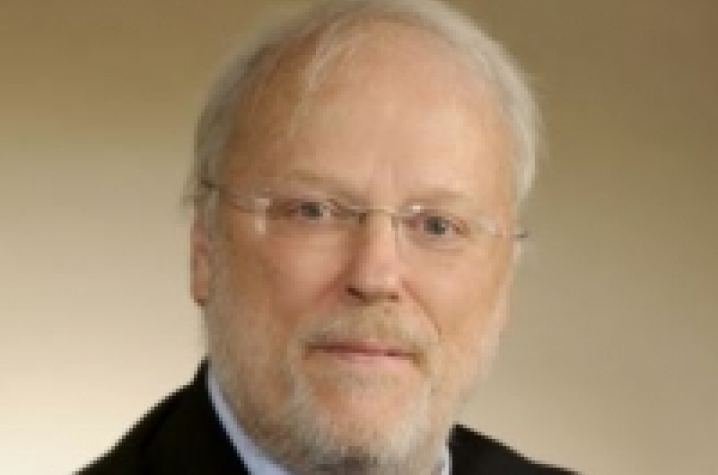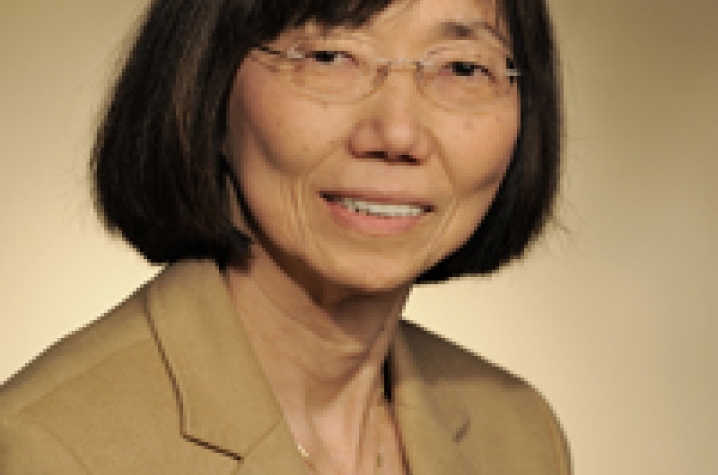Butterfield's Research Garners International Recognition
LEXINGTON, Ky. (March 17, 2014) — After 39 years of working in the University of Kentucky's Department of Chemistry, you might suspect one would get bored with the work. But professor Allan Butterfield describes his current project as "one of the most intellectually stimulating projects I've ever worked on."
Butterfield, whose many titles include director of the UK Markey Cancer Center's Free Radical Biology in Cancer Shared Resource Facility, studies oxidative stress in the brain. This includes the effect of oxidative stress on the development of Alzheimer's disease, and, in collaboration with Daret St. Clair, Markey's associate director for basic research, the study of chemotherapy-induced cognitive impairment (CICI), known colloquially as "chemo brain" by the cancer patients who experience it.
This research is not only stimulating, but groundbreaking, as well — Butterfield was recently awarded the 2014 Alkmeon International Prize for his work, an accolade that puts him in the same company as many Nobel Laureates and members of the National Academy of Sciences. In April, he will be presented the award in Rome, Italy, by Professor Giussepe Nistico of the University of Rome on behalf of the European Brain Research Institute, which sponsors the Alkmeon International Prize. In addition, he will be giving a lecture about his work at the University of Rome II (Tor Vergata) and a seminar in biochemistry at the University of Rome I (La Sapienza).
"I am truly honored to receive this award," Butterfield said. "The Alkmeon International Prize represents worldwide peer recognition of the decades of brain research by our highly talented graduate and undergraduate students, postdoctoral scholars, and visiting scientists in our laboratory that has led to numerous discoveries illuminating molecular mechanisms of brain disorders like AD and CICI."
UK's research into these two major neurological problems has the potential to affect millions of patients in the U.S. More than 5 million Americans are living with Alzheimer's disease, and one of every three senior citizens dies with Alzheimer's or another form of dementia. Butterfield's research has blazed the trail for research on the concept of oxidative stress as a potentially fundamental underlying aspect of Alzheimer's disease, and many other labs across the country have begun pursuing their own studies into the field. Advancements in these studies could lead to better treatment and understand of this devastating disease.
Additionally, among the 14 million cancer survivors in the U.S., many suffer from symptoms of CICI, which include negative impacts on reasoning and multitasking, confusion, and fatigue — all major quality-of-life issues. These side effects can be long lasting — decades, in extreme cases — and can have a significant negative impact on a patient's ability to function and even work post-treatment.
Since Markey earned its status as a National Cancer Institute-designed Cancer Center, this problem has become even more of a focus for Butterfield, St. Clair, and many other researchers and physicians at UK. The term "bench to bedside" is often used when describing research at an academic medical center like UK, but St. Clair describes CICI research as "bedside to bench and back," noting that to try and find solutions to the problems patients were reporting, the team had to go back to the lab and recreate the problem in animal models so that they could begin their basic science testing.
Facilitating these types of back-and-forth investigations means a great deal of collaboration between basic science and physician researchers. Drs. Jeffrey Moscow and John Hayslip are heavily involved in the CICI research from the clinical side.
"We are very fortunate that at Markey we have physicians who not only focus on the cure of cancer with the best available methods, but are also interested in finding ways to improve the quality of life for patient during and after cancer therapy," St. Clair said. "Our physicians work as a team with basic scientists to research ways to improve cancer treatment with reduce side effects."
There is hope on the horizon for finding methods to prevent CICI. A recent UK clinical trial showed promise for a drug called Mesna, which had previously been used in conjunction with other drugs during cancer treatment to help prevent bladder problems. The team's work showed that Mesna blocked CICI in animal models, and the research was translated into a two-year clinical trial, completed in late 2013. While their teams are currently analyzing the data and preparing for a possible expanded trial that would include UK Markey Cancer Center Affiliate Network hospitals, Butterfield and St. Clair say that the drug looks promising.
Butterfield has received numerous honors for his research over the years, but he is quick to point out that research is not a one-man show — it takes a strong infrastructure that allows collaboration from experts across many areas and disciplines across campus. UK's position as an academic medical center fits that bill. Individual medical centers like the Markey Cancer Center and the Sanders-Brown Center on Aging — both of which utilize Butterfield's expertise in redox research — benefit from the resources of eight colleges across UK's campus.
Butterfield says that Markey's Free Radical Biology in Cancer Shared Resource Facility is especially unique, noting that only the University of Iowa has a comparably robust program.
"The FRBC is unique because Markey researchers can directly test the roles of free radicals and oxidative stress in cancer and cancer chemotherapy," Butterfield said. "Samples from cancer patients can be examined on-site for oxidative damage, redox metabolism, and identification of altered proteins, all providing new insights into the molecular bases of cancer and its treatment."
MEDIA CONTACT: Allison Perry, 859-323-2399 or allison.perry@uky.edu






